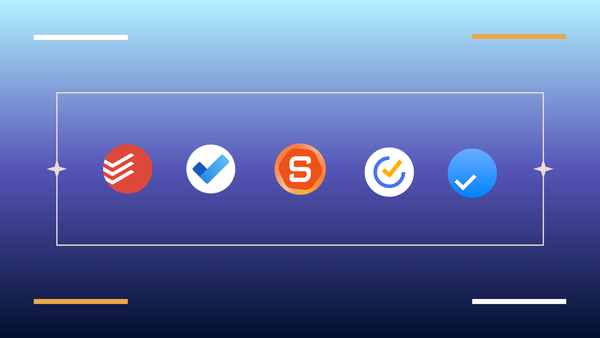13 Ways I used to Improve Focus and Reduce Context Switching

How I improve my focus and reduce context switching
Staying focused today feels harder than ever.
Between constant notifications, open tabs, and a brain that loves chasing shiny things, it’s no wonder most of us feel scattered and mentally drained. We want to concentrate - but we’re living in an environment that makes it almost impossible.
Over the past few years, I’ve experimented with different methods to improve my focus and reduce the mental friction caused by jumping between tasks. Some ideas worked. Others didn’t.
This post is a collection of the 13 strategies that actually made a difference in my life - helping me think clearly, stay in flow longer, and finish what matters.
Whether you're a student, founder, researcher, or someone simply tired of mental clutter, this post is for you.
1. What is focus?

Focus isn’t just about willpower. It’s about intentionally choosing one thing and ignoring everything else - even if just for 25 minutes.
To focus on something, you have to say yes to that one thing and no to a thousand others. That’s why real focus often feels uncomfortable. It means letting go of the illusion that we can do it all at once.
Sustainable focus isn’t about superhuman discipline—it’s about creating an environment where distractions have no room to sneak in.
2. The Real Problem: It's Not Focus. It’s Decision Fatigue.
I used to think I had a “focus problem.”
But the truth? I had a decision problem. I’d spend way too much time deciding what to do, switching between tabs, checking emails, telling myself I could multitask.
Here’s what changed that: deadlines.
When something is due, you don’t hesitate. You pick one thing. You get it done. You focus - not because you’re better at it, but because there’s no room left to decide.
Once I saw that, I stopped blaming myself for being “unfocused” and started asking: What’s making me hesitate? What decisions can I eliminate upfront?
3. Multitasking Is a Lie
I used to believe I was good at multitasking - until I looked at my browser history and the half-written docs on my desktop.
Let’s say you’re writing an article, and then your phone rings. You answer. You come back to the article. What happens? You reread. You retrace. You lose the thread.
That’s called context switching, and it’s not harmless.
Studies show that every time you switch tasks, there’s a cognitive cost - your brain needs time to reset, remember where you were, and get back into flow. That cost adds up fast.
🔬 Research Highlights:
- Cognitive control in media multitaskers (Ophir, Nass & Wagner, 2009): Found that frequent multitaskers were actually worse at filtering out distractions.
- Executive control of cognitive processes in task switching (Rubinstein, Meyer & Evans, 2001): Switching between tasks slows you down—even if you think you’re doing fine.
- Is multitasking a myth? (BBC News): Multitasking not only hurts productivity but also increases stress and mental fatigue.
The takeaway? Single-tasking is a superpower. You don’t need to do more - you need to do less, better.
13 Methods I use to Improve My Focus

Because I am a person who has difficulty concentrating, I always look for solutions to improve myself. Below are 13 ways I have compiled based on my own experience and those of people like me:
1. Meditation and Mindfulness Practices: Regular meditation has been shown to increase focus and concentration. Even a few minutes a day can make a difference.
2. Set Clear Goals: Knowing exactly what you need to accomplish can help direct your focus towards achieving specific objectives.
3. Break Tasks into Smaller Steps: Large tasks can be overwhelming. Breaking them down into manageable steps can help maintain focus and a sense of achievement.
4. Limit Distractions: Identify what commonly distracts you in your environment and find ways to minimize these distractions.
5. Use focus tools and apps: There are various tools and apps designed to help improve focus and productivity, such as Pomodoro timer or Saner.AI, where you can do everything on 1 screen.
6. Practice Time Management: Allocate specific times for tasks and stick to them. This can help train your brain to focus during those periods.
7. Stay Organized: Keeping your workspace and tasks organized can reduce mental clutter, making it easier to focus.
8. Take Regular Breaks: Short breaks during long tasks help maintain a high level of performance; they allow the brain to rest and reset.
9. Exercise Regularly: Physical activity can boost brain function, including attention and memory, which can help improve focus.
10. Prioritize Sleep: Adequate sleep is crucial for cognitive functions, including focus and concentration.
11. Stay Hydrated and Eat Healthily: Proper nutrition and hydration can affect brain function and, consequently, focus.
12. Train Your Brain: Engage in activities that challenge your brain and improve cognitive function, such as puzzles or learning a new skill.
13. Practice Gratitude: Focusing on positive thoughts and practicing gratitude can improve psychological health and focus.
Final thoughts
Improving focus is not an overnight task, but with consistent practice and the application of the methods mentioned above, it is achievable. Remember, the key is to start small and remain consistent.
Over time, these practices will become second nature, and you'll find your ability to focus strengthening like never before.




